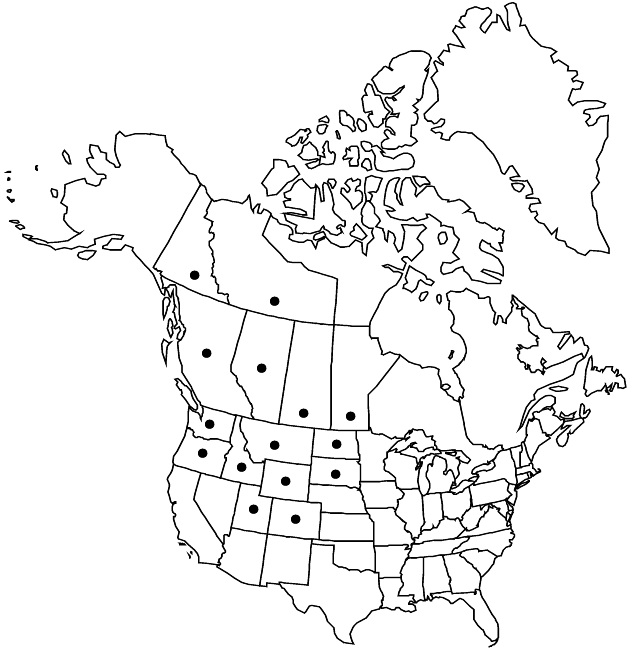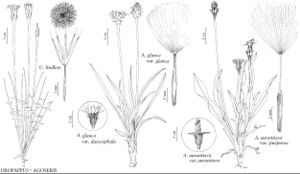Agoseris glauca var. dasycephala
Man. Fl. Pl. Calif., 1005. 1925.
Leaf-blades: margins often undulate, usually entire, sometimes lobed, faces usually puberulent to densely villous, sometimes glabrous, rarely glaucous. Peduncles usually apically villous to lanate (glabrous in one phase), sometimes ± stipitate-glandular. Involucres obconic to hemispheric. Phyllaries often medially rosy purple and usually with some combination of purple-black spots, speckles, midstripes, or tips, rarely all green, margins ± undulate or reflexed, often hairy, faces usually villous to hirsuto-tomentose, sometimes glabrous, mostly stipitate-glandular; outer erect or spreading, usually adaxially villous, sometimes glabrous. Receptacles usually ± paleate. Cypselae usually glabrous, sometimes scabrous distally. 2n = 36.
Phenology: Flowering Jul–Aug.
Habitat: Moist to dry habitats, alpine meadows, montane forests, northern prairies, arctic tundra, in gravelly, rocky, and other coarse-textured soils
Elevation: 100–3600 m
Distribution

Alta., B.C., Man., N.W.T., Sask., Yukon, Colo., Idaho, Mont., N.Dak., Oreg., S.Dak., Utah, Wash., Wyo.
Discussion
Variety dasycephala occurs primarily at high elevations in the western cordillera, extending eastward onto the northern prairies, and disjunctively in the Canadian arctic (Caribou Hills). It is more readily distinguished from var. glauca southward, where the two varieties are ± elevationally separated. Difficulty in separating them occurs northward, where they are nearer each other and pockets of complete introgression occur, e.g., southeastern British Columbia and southwestern Alberta. Hybrids with Agoseris aurantiaca and A. parviflora also occur.
Variety dasycephala contains regional phases that exhibit a step-clinal distribution. The large number of synonyms reflects the variation. As circumscribed here, var. dasycephala encompasses most of what has been called Agoseris glauca var. agrestis (see discussion under var. glauca).
Selected References
None.
Lower Taxa
"fine" is not a number."elongating" is not a number.
